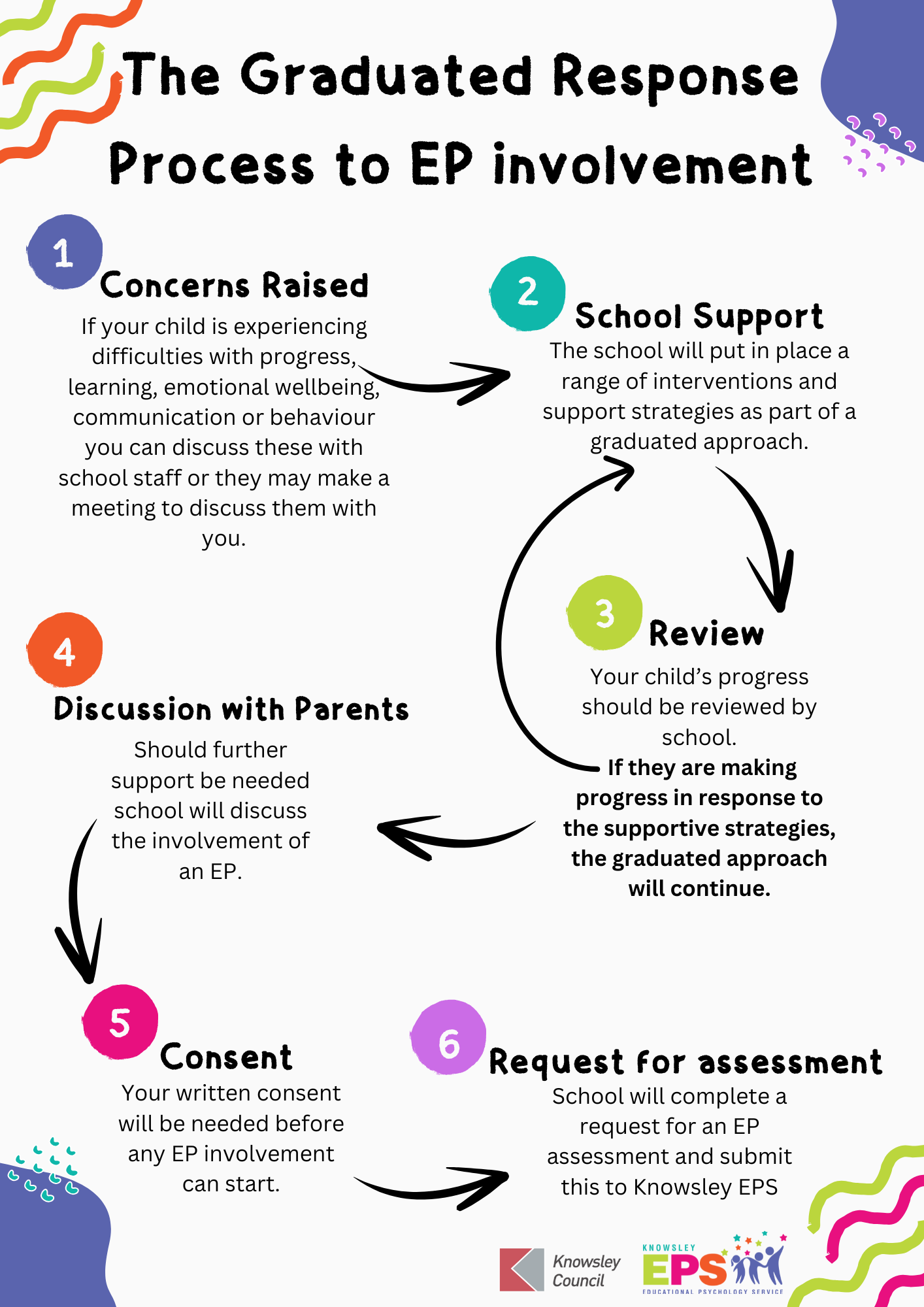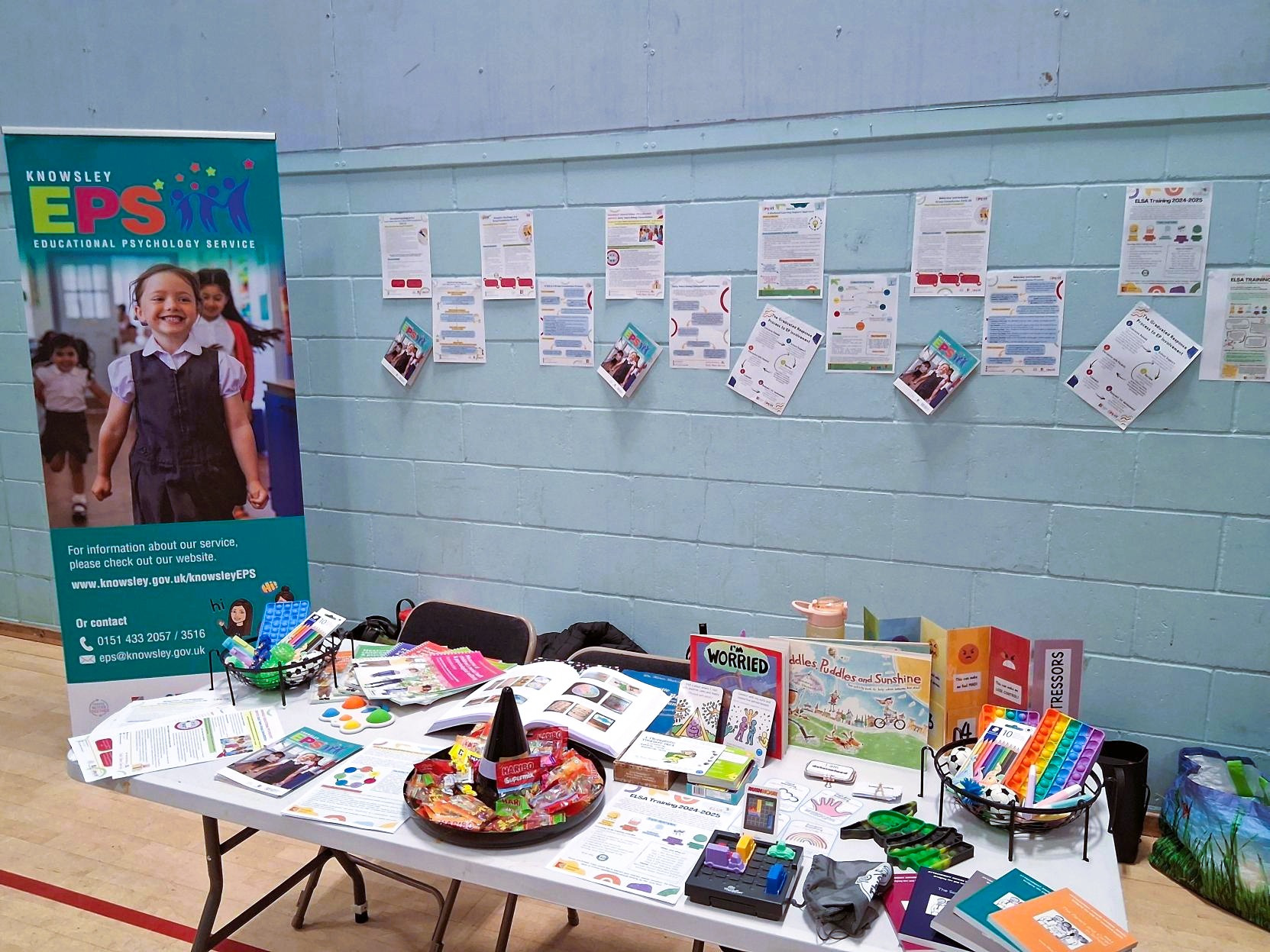What do Educational Psychologists do?
Educational Psychologists (EPs) work with children and young people from birth to 25 years old as well as with families, schools and other professionals.
Their goal is to help children and young people reach their potential in education and wider life.
How do Educational Psychologists become involved?
We take requests for Educational Psychologist involvement from schools. If you think advice from an Educational Psychologist might be helpful, talk to your child or young person’s class teacher, key person or make an appointment to talk to the school or nursery’s Special Educational Needs Disabilities co-ordinator (SENDCo).
If Educational Psychology involvement is appropriate, a request for involvement will be made by school directly to Knowsley Educational Psychology Service.
Parent consent will always be obtained before any involvement takes place.
For further information, please watch the video below:



